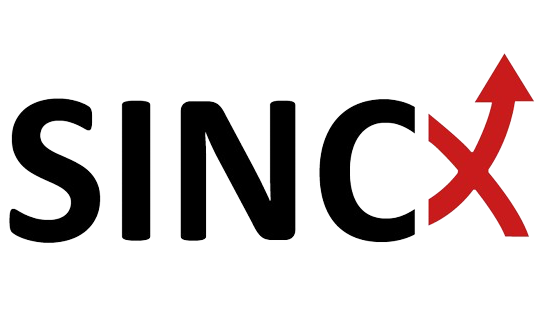Organizations are constantly looking for individuals with the right skill set. But what exactly constitutes the “right” skills? We often hear the terms “hard skills” and “soft skills” thrown around, but what’s the difference between hard and soft skills and how do they impact your employability?
In this article we will discuss about the world of hard skills and soft skills, providing clear definitions, examples and highlighting their importance in today’s place. While hard skills are specific and measurable competencies, soft skills encompass interpersonal abilities and emotional intelligence.
When it comes to excelling in your career, you need a blend of both hard skills and soft skills. Let’s break down what each of these entails and explore their differences.
What are Hard Skills?
Hard skills refer to technical competencies that are essential for performing specific tasks or roles. These skills are often quantifiable and can be learned through formal education, training programs or on-the-job experience. Such skills are the technical proficiencies that an individual brings to a job, often listed on resumes and evaluated through interviews and practical tests.
Having a strong foundation in hard skills allows you to perform the core functions and responsibilities of your role effectively.
What are Soft Skills?
Soft skills are also known as human skills. These consist of a broader range of personal qualities and interpersonal skills that contribute to your overall effectiveness in the workplace. Soft skills include communication, adaptability, empathy and collaboration. Soft skills are often developed through life experiences and personal interactions rather than formal training.
Unlike hard skills, they are harder to measure and are best observed through real-life interactions. These personality traits and social competencies enhance your ability to interact with others effectively. These skills play a critical role in how employees build relationships, resolve conflicts and contribute to a positive work environment. Particularly for the people managers, team related soft skills are very necessary. These can be learnt and practiced by going through a structured training program.
The Difference Between Hard Skills and Soft Skills
The primary difference between hard skills and soft skills lies in their nature and how they are acquired, measured, their tangibility and application. In comparison to soft skills, hard skills are easier to teach, learn and quantify. Hard skills are typically more specific, measurable and often tied to a particular role or industry. Soft skills, on the other hand, are more transferable and can be applied across various jobs and situations. Such skills are broader and more related to an individual’s personality and behaviour. They are harder to teach because they involve emotional intelligence and interpersonal dynamics.
Here is a table summarizing the key differences:
| Feature | Hard Skills | Soft Skills |
|---|---|---|
| Definition | Technical abilities and knowledge | Interpersonal abilities and personal qualities |
| Application | Job-specific | Transferable across various jobs |
| Measurability | Quantifiable
(e.g., certifications, test scores) |
Subjective
(e.g., behavioural assessments, feedback) |
| Examples | Programming languages,
Cooking meals, Operating machine, etc. |
Communication,
teamwork, problem-solving, etc. |
Examples of Hard Skills and Soft Skills
- Programming (Knowledge of languages like Python, Java or C++)
- Data Analysis (Ability to use tools like Excel, SQL or R)
- Graphic Design (Proficiency in software such as Adobe Photoshop or Illustrator)
- Accounting (Understanding of financial principles and use of accounting software)
- Foreign Languages (Fluency in languages other than your native tongue)
- Accounting software (e.g., QuickBooks, Xero)
- Medical diagnosis (e.g. Doing Xray, Blood Test)
- Engineering design software (e.g., AutoCAD, SolidWorks)
- Data analysis tools (e.g., Excel, Tableau)
- Driving (Knowing how to drive a Truck or a Taxi)
Soft skills can be applied to multiple Job roles. Few examples of soft skills are listed below:
- Communication (Ability to clearly convey information and listen effectively)
- Leadership (Guiding and motivating a team towards achieving goals)
- Teamwork (Collaborating effectively with others to achieve common objectives)
- Problem-Solving (Identifying issues and developing effective solutions)
- Adaptability (Being flexible and open to change in various situations)
- Time management (Know how to schedule task in given time)
- Work ethics (Being loyal to organization, customers and peers)
- Emotional intelligence (Able to handle situations in difficult emotional conditions)
- Negotiation (Able to access situations and making a win-win outcome)
- Critical Thinking (Understanding all data points and making decisions)
Importance of Hard Skills & Soft Skills
We can’t say that only hard skills are important or only soft skills are important. Both of them have their equal importance. The importance may vary based on your job role.
Let’s consider a real-world example to illustrate the importance of both, hard and soft skills. Imagine you’re applying for a graphic design position. The job description might list specific software proficiency in Adobe Creative Suite as a hard skill requirement. However, being a successful graphic designer also requires strong soft skills, such as the ability to:
- Communicate effectively with clients to understand their needs and vision
- Collaborate with other designers and marketing teams to ensure brand consistency
- Think creatively to develop innovative design solutions
- Manage time effectively to meet deadlines
Employers are increasingly looking for candidates who possess a well-rounded skill set that combines both hard and soft skills. While having technical expertise is crucial, being able to communicate, collaborate and solve problems effectively is equally important for success in today’s dynamic work environment. Good organizations conduct training programs for their employees to overcome their performance gaps by gaining new skills.
By combining both hard skills and soft skills, individuals can enhance their demand and performance in the workplace. Employers value candidates who possess a balanced mix of both skill sets, as they are more likely to contribute to the organization’s success and adapt to changing environments.
Faqs
What are hard skills?
Hard skills are specific, teachable abilities or knowledge required to perform a particular task. They are usually acquired through formal education or training and are easily measurable. Examples include proficiency in software, technical skills and knowledge of foreign languages.
What are some hard skills?
Examples of hard skills include programming languages, software applications, data analysis tools and engineering design software.
How to identify hard skills?
You can identify hard skills by evaluating the technical requirements of a job or industry. Look at job descriptions, seek feedback from colleagues or mentors and consider the tasks you perform regularly that require specialized knowledge or technical proficiency. Training and certifications can also highlight your hard skills.
Is leadership a soft or hard skill?
Leadership can be considered as a soft skill. It involves guiding and motivating others, which requires interpersonal abilities, emotional intelligence and effective communication, all of which are characteristics of soft skills.
Is public speaking a hard skill?
Public speaking is generally regarded as a soft skill because it involves communication, confidence and the ability to engage with an audience effectively. However, specific techniques and training can also make it a hard skill.
What are 5 hard skills and soft skills?
Five hard skills: programming, data analysis, project management, language proficiency and technical writing. Five soft skills: communication, teamwork, adaptability, creativity and emotional intelligence.
Why are hard skills important?
Hard skills are important because they are the technical abilities necessary to perform job-specific tasks. They are often required to meet the basic qualifications for a role and are critical for executing the responsibilities of a job effectively.
Why are soft skills important?
Soft skills are important because they influence how individuals interact with their colleagues, handle stress, solve problems and navigate their work environment. They are essential for building a positive workplace culture, enhancing teamwork and achieving long-term career success.
Related Posts

24 October, 2025





